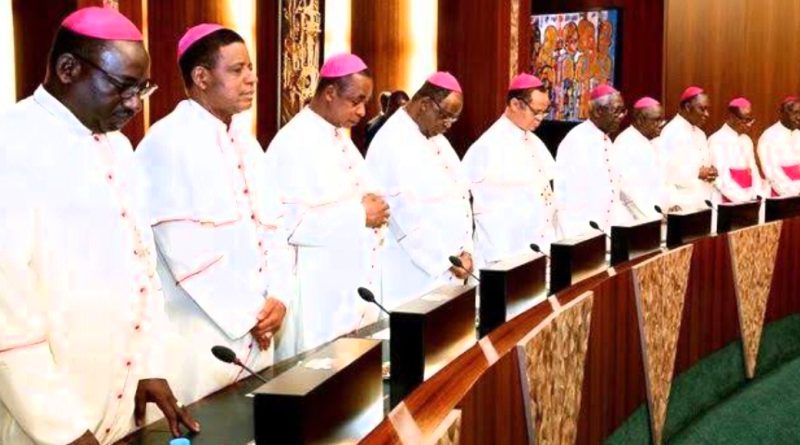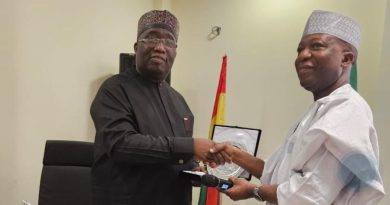Christian education bill unconstitutional, Catholic bishops tell NASS
State Correspondent
The Catholic Bishops Conference of Nigeria has rejected a bill seeking to establish the National Council of Christian Education, contending that the proposed law violates sections 10 and 42(3) of Nigeria’s Constitution.
Rather than promoting a bill that violated the secular character of Nigeria, the bishops tasked the Christian Association of Nigeria, which originally pushed for the bill at the National Assembly, to promote legislation that decisively address unprovoked attacks on Christians in the North, among others.
The CBCN rejected the bill in a statement by its President, Archbishop Lucius Ugorji, and Secretary, Bishop Donatus Ogun.
The bill, which seeks to develop, regulate and approve syllabuses/contents at all levels of Christian education, was sponsored by Hon. Rimamde Kwewum, Hon. Beni Lar, Hon. Yusuf Tajudeen, Hon. John Dyegh, Hon. Solomon Bob and Hon. Benjamin Mzondu.
So This Happened (202) Reviews Lagos…
Among others, the bill was designed to certify Christian religion education instructors at basic and secondary levels; approve the content of all Christian Religion Education in all schools and accredit programmes of Christian theological institutions.
But the Catholic bishops lamented that the bill made no exemption for seminaries and other religious institutes owned by the various Christian denominations across the federation.
On this ground, the bishops claimed that the bill infringed on the rights of these various Christian denominations to provide instructions and formation according to their respective doctrines, citing Section 42 (3) of the 1999 Constitution.
They also claimed that the bill “is incompatible with the secular character of the Nigerian State as enshrined in Section 10 of the 1999 Constitution of the Federal Republic of Nigeria.”
“Inasmuch as the governments at the federal or state levels have not and cannot adopt any religion as official religion, they must respect the juridical principles that govern the relationship between the state and the church,” the bishops argued.
The bishops explained that the idea of pursuing a bill “to regulate religious studies in secular schools came up during the education summit organised in 2019 by the Association of Christian Schools in Nigeria, a body of mostly Pentecostal private school owners and some protestant denominations.”
They observed that the bill neither intends to regulate theological concerns nor have anything to do with theological institutions as originally intended and conceived.
After discussing the idea, the bishops disclosed that CAN decided to pursue it by asking the lawmakers to sponsor the bill, alleging that some elements were added to the bill at some points, which are not in the interest of the church.
They further said the bill “is unnecessary and impracticable because of our doctrinal differences. Our juridical autonomy in matters of education is being surrendered to the government.”
They also challenged CAN to undertake “a proper needs assessment to determine the needs of Christians in Nigeria that would require the support of the government. Asking the government to establish a Council for Christian Education because Muslims have one is counterproductive.”
(The Punch)




